Share
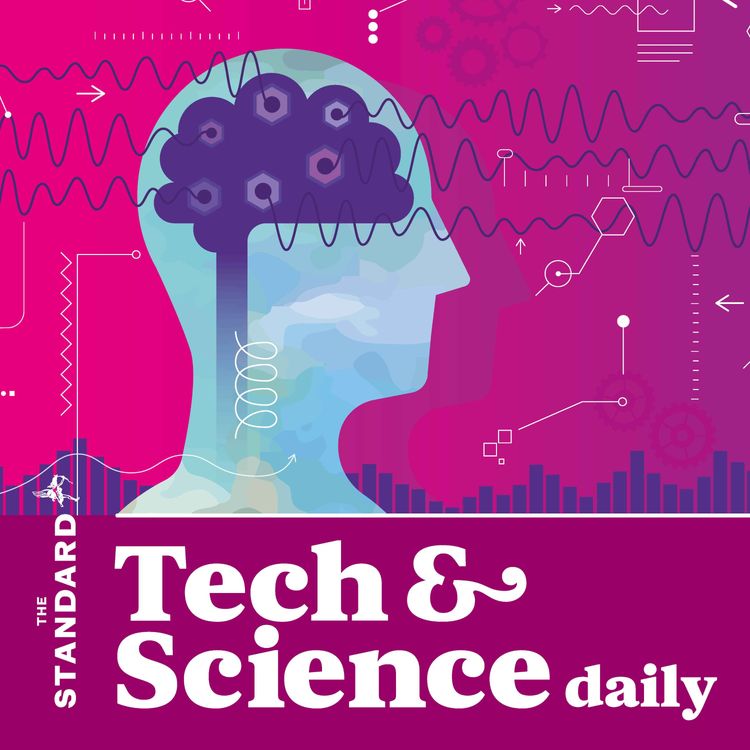
Tech and Science Daily | The Standard
Tiny robots ‘to treat brain bleeds’
Season 1
•
Scientists are developing magnetised nanorobots that can be injected into the human body and perform complex tasks such as treating brain bleeds - Tech & Science Daily podcast hears about the pioneering study from Dr Qi Zhou, of the University of Edinburgh’s School of Engineering, who co-led the study. Lab-grown cocoa & future of chocolate. Doctor will scan you now...clinic’s high-tech check-ups.
Also in this episode:
- Earth’s yearly 220 million tons of dumped plastic
- Rare tree bugs that can ‘bite’ humans found in London
- Prison spends £22m to fight drone drug deliveries
- Digital fingerprints for France-bound Brits
More episodes
View all episodes

Tinnitus sound therapy hope, December game releases, Which? Top 50 picks & major ocean conservation win
14:19||Season 1In this Friday episode of Tech and Science Daily from The Standard, we look at a new UK sound therapy that has reduced tinnitus loudness in trials and could one day be delivered by smartphones. We round up December 2025’s biggest new game releases before an interview with Which? editor Harry Rose on their Top 50 products of the year – including that headline-grabbing Asda ketchup ranking. We end on a good-news climate story, as a $24.5m Bezos Earth Fund package moves the world’s first cross-border marine biosphere reserve in the eastern Pacific a step closer to reality.
How AI search really picks winners: ChatGPT, LLMs and the future of retail discovery
14:38||Season 1As more of us ask ChatGPT what to buy — instead of Googling it — the rules of being discovered online are changing fast.In today’s episode, we dig into how large language models like ChatGPT, Claude and Perplexity are quietly becoming the new front door to retail. When an AI gives a single recommendation instead of a page of links, how does it choose who to trust, which brands to surface, and who gets left out completely?We're joined by Chris Donnelly, founder of Searchable – an agentic AI platform that shows businesses how they’re being read, ranked and recommended by LLMs. Chris explains how these models currently pick winners, why smaller brands can still compete, and what “Generative Engine Optimisation” actually means in practice.We also look at what this shift means for Christmas shopping, how retailers should prepare their data and content for AI-driven discovery, and what the future of search might look like over the next few years.For all the latest news, head to standard.co.uk.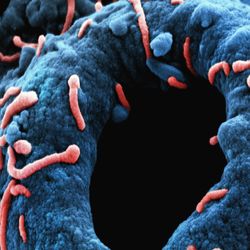
London “superflu” warning, Tube fare hike, UK satellite-to-mobile push & PlayStation 2025 Wrap-Up
08:52||Season 1On today’s Tech and Science Daily from The Standard, we look at NHS warnings over a record “superflu” wave hitting London and what it means for hospitals and daily life in the capital. We break down the 5.8% Tube fare rise coming next March and a new AI carers’ support trial in Richmond. After the break, we cover a fresh MIT study on how the brain and immune system team up to keep you in bed when you’re sick, PlayStation’s 2025 Wrap-Up gaming recap, and Samsung’s latest Android XR upgrade for its Galaxy XR headset. For more head to standard.co.uk.
London innovation fund, Geminid meteor shower & garlic mouthwash study – plus Claimit CEO interview
10:05||Season 1On today’s Tech and Science Daily from The Standard, we’re in London for the city’s share of a major innovation fund and a Royal Society summit on marine biodiversity, fishing and climate change, with a quick nod to the UK Biobank Scientific Conference in Westminster. We’re also joined by Andy Watson, co-founder and CEO of Claimit, to help us understand why lost parcels are costing businesses billions. After the interview, we chat the Geminid meteor shower over London and unpack a new study testing garlic mouthwash against standard antiseptics. For the latest news head to standard.co.uk.
Cloudflare outage, UCL air pollution study & December PS Plus games
09:28||Season 1On today’s Tech and Science Daily from The Standard, we break down new TfL lift tech for step-free travel, explain a major UCL study on how air pollution can weaken the benefits of exercise, and look at Cloudflare’s latest outage hitting LinkedIn and Zoom. We also cover a huge neutrino collaboration that could explain why the universe exists, December’s PlayStation Plus free games and upcoming Game Awards 2025, and Amazon’s new Alexa Plus scene-skipping feature for Fire TV.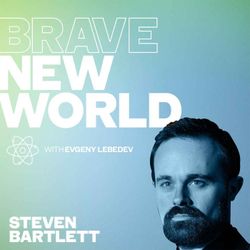
Steven Bartlett on Brave New World (Preview)
14:00||Season 1A special preview from our sister podcast Brave New World, which has just launched Season 4. Host Evgeny Lebedev sits down with Steven Bartlett to talk ambition, mindset, burnout, and the lessons failure can teach us — including one learned on a padel court. Listen to the full conversation on the Brave New World podcast here.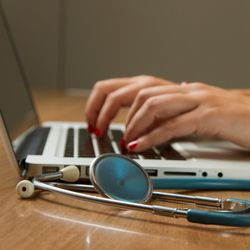
AI in your GP, quantum brain scans for troops, and Samsung on decision fatigue
14:46||Season 1In today’s episode of Tech and Science Daily from The Standard, we look at a West London GP surgery trialling Mirror, an AI “patient scribe” that helps NHS patients remember their appointments, and the UK’s world-first mobile quantum brain scanner designed to study blast effects on troops. We’re also joined by Samsung UK & Ireland Chief Customer Officer Deborah Honig to discuss new research on decision fatigue and how AI could ease everyday choices. Plus, we round up December’s Xbox Game Pass games, Jorja Smith's AI clone drama, and explain why Android’s latest security update is a must-install for your phone.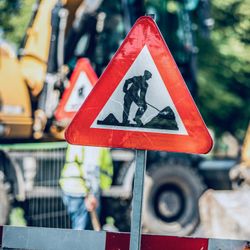
London council cyber attacks, NHS winter crisis warning, underground maps, quantum teleportation & YouTube Recap
14:07||Season 1In today’s Tech and Science Daily from The Standard, we break down the cyber attacks hitting multiple London councils, warnings of a “historic winter crisis” in the capital’s A&Es, and a major update to Ordnance Survey’s underground mapping project as Openreach joins the National Underground Asset Register.We also take a look at a new UK cyber tool blocking nearly a billion malicious web attempts, hydrogen tech cutting rail maintenance emissions, and a UK-led breakthrough in quantum teleportation between linked networks. Plus, December’s first PlayStation Plus game, and YouTube Recap 2025.For all the latest news, head to standard.co.uk.
Heathrow third runway explained, London drones row, Samsung TriFold & December’s big game releases
13:31||Season 1On today’s Tech and Science Daily from The Standard, we break down the UK Government’s decision to back Heathrow’s third runway plans and speak to UN tourism adviser Anita Mendiratta about what the expansion means for London, the environment and rival European hubs. We also look at how power-hungry data centres are worsening the capital’s housing crisis, why Hammersmith & Fulham wants drones to tackle crime, and Uber’s new autonomous delivery robots launching in UK cities. Plus, we cover Samsung’s Galaxy Z TriFold foldable phone and the biggest gaming releases landing this December.For all the latest news, head to standard.co.uk.